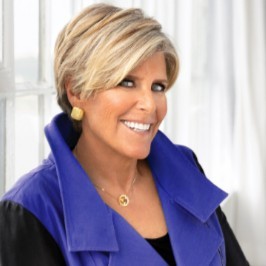Financial insecurity is rampant among employees: Data estimates that 37% of Americans can’t easily come up with $400 in the event of an emergency and two-thirds of Americans believe they will run out of their savings in the next five months. Overall, more than half of Americans are financially vulnerable—and it goes beyond young and low-income workers.
“It’s not just the Gen Z population, but millennials, Gen X and baby boomers, and a lot of people with bachelor’s or even advanced degrees, are financially vulnerable,” Charles Knuth, director of SoFi at Work, said last week at HRE’s Health & Benefits Leadership Conference. “And 60% of the financially vulnerable and employed make over $75,000 and 39% are making over $100,000.”
Related: 10 big lessons from HRE’s Health & Benefits Leadership Conference
What sets the financially vulnerable apart? Most of them don’t have a solid financial education, and they don’t have good savings habits, he said. And that needs to change—and the onus for change is partly on employers.
“It makes sense for the employer to lead the charge with emergency savings,” he said.
That’s because not only are employers a trusted source of information for workers, but employees are now expecting involvement from their employer to help them with their finances. “Employees are actually expecting it, they’re raising their hand with a white flag, ‘Hey employer, can you give me more support with my financial wellbeing?’” Knuth said. Employers also have the knowledge to vet financial solutions, he said.
Employers will get advantages from helping employees with this, too: For a typical company, with 5,000 employees, the cost of lost productivity for financial stress was $3.3 million-plus in 2019. In 2020, that grew to $4.7 million. “Those are big numbers and show a lot about the power of financial wellbeing,” he said.

Suze Orman, co-founder of Secure
Employer-provided emergency savings accounts were a big talking point during last week’s conference, with several experts touting the benefit and predicting it will be a rising benefit trend. “The day has come where we need workplace savings to have more than just a single option,” Devin Miller, CEO and co-founder of Secure, an emergency savings fintech platform, said during another session at the event. “You need to have variation to support different employees in different stages of life. You can’t be using your 401(k) as an emergency fund.”
Expect employers to offer emergency savings programs as an employee benefit, keynoter Melissa Gopnik, senior vice president at financial security nonprofit Commonwealth, said during a keynote. Split deposits—which can put some of a worker’s paycheck directly into a savings account—are an especially low-hanging opportunity for employers to embrace, she said.
Related: The $400 problem: Improving employee financial wellness
Meanwhile, Suze Orman, personal finance expert, Secure co-founder and podcast host, said during the conference that employers have an obligation to help employees save and feel financially secure.
“An emergency fund offers hope,” she said. “The one word—besides secure—that I hope you want to give to all your employees is hope. Without hope, it’s like you’re asphyxiated; you can’t breathe. And sometimes, just a little action instills hope.”
*
Conference sessions will be available on-demand through June 11. Register here if you haven’t. Click here to view this entire session.